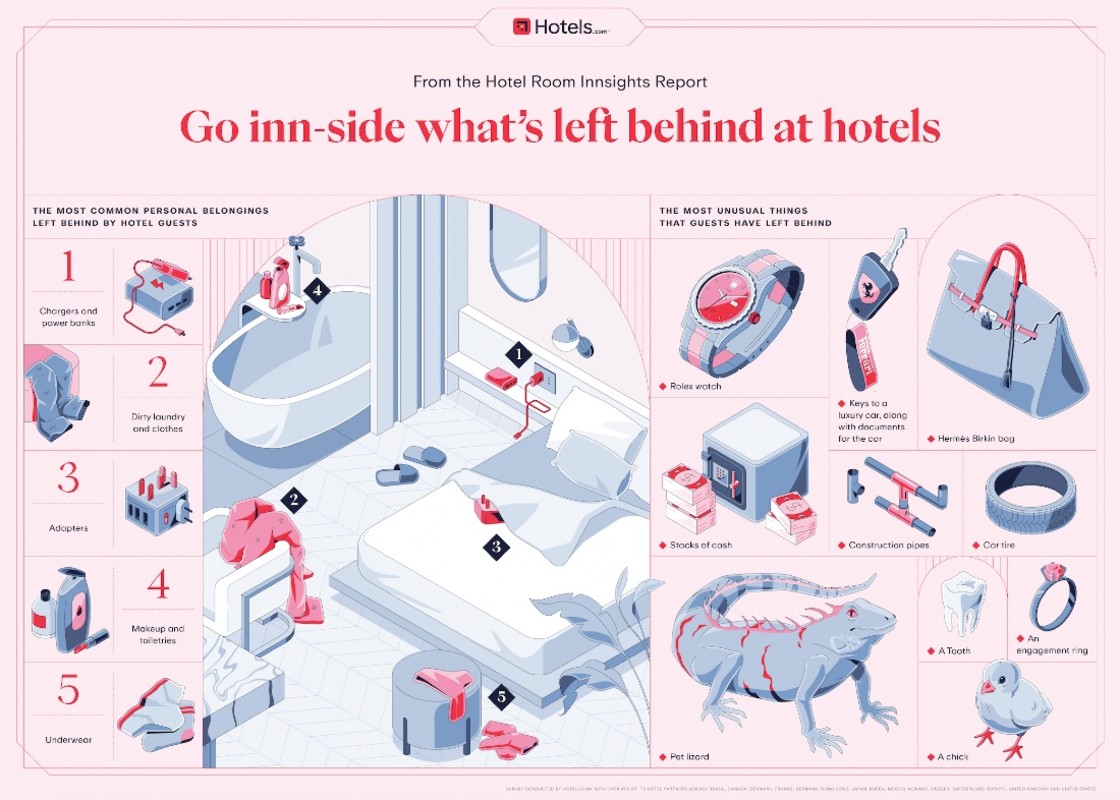Anyone who travels regularly has experienced the unfortunate feeling of leaving a personal item in a hotel room—it could be a phone charger or a less replaceable object—a piece of jewelry or a beloved, decades-old T-shirt, for example. But while these losses are frustrating, they barely even scratch the surface of what some guests leave behind.
Hotels.com has released its annual Hotel Room Innsights Report, which reveals the most surprising services and stories from the website's 400-plus hotel partners around the world. And as part of the findings, the report details the most common—and strangest—items left behind in hotel rooms.
The most commonly forgotten items are things you would expect, even if you haven’t personally experienced them, and the top five include: device chargers and power banks; dirty laundry and clothes; adapters; make-up and toiletries; and finally, underwear.
But the most unusual items left behind by guests are the artifacts that go far beyond the boundaries, featuring everything from live animals to a real car tire.
The most expensive items include a Rolex watch, a Hermès Birkin bag, the keys to a luxury car (and documents for said car), literal wads of cash, and a diamond engagement ring. Hotel guests sometimes forget their pets, too, though these have apparently been thankfully returned, including a live chick and a pet lizard.
And then there are the inexplicable things. These include the aforementioned car tire, a rice cooker and blender (for those who inexplicably cook their meals in their hotel rooms), construction pipes, and in at least two cases, full leg casts. A shocking 10 percent of hotels surveyed also say guests leave behind dentures.
Check out the infographic below or go to: Hotels.com For more information.

Hotels.com